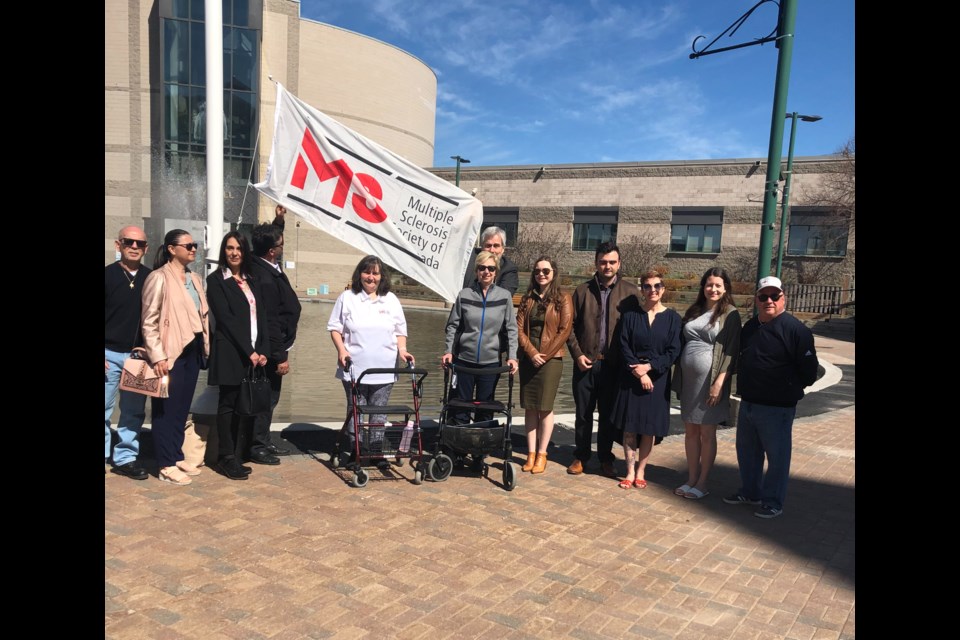May is Multiple Sclerosis (MS) Awareness Month, and while medical advancements have come a long way, one local woman says political advancements have not.
According to the national MS Society website, Canada has one of the highest rates of MS in the world, with an estimated 90,000 Canadians living with the disease, which attacks the central nervous system.
Andrea Butcher-Milne is 52 years old and has MS for more than half her life.
“I like to say it on a personal note that this month is to make my invisible disease visible,” said Butcher-Milne. “That's exactly what we’re trying to do is help people become aware about what us who live with MS are going through on a day-to-day basis.”
Butcher-Milne says people living with MS call it the ‘snowflake disease,’ because no two symptoms are the same.
“I, for example, get up in the morning and my legs feel really heavy, like I’ve already walked a marathon,” said Butcher-Milne. “I’ve had MS for 25 years and have always had a sensation of pins and needles in my legs for that time. So that feeling some have when their legs are going numb from sitting a certain way or such, I have that all the time.”
Butcher-Milne said she also deals with chronic fatigue and may have spurts of energy, but then has to rest.
On average, 12 Canadians are diagnosed with MS everyday. Most people are diagnosed between the ages of 20 and 49 and the effects of the disease will last for the rest of their lives.
“I got diagnosed at an age when you’re starting a career, buying a house, talking about starting a family. It changed everything because my husband and I had only been married for a year and a half,” said Butcher-Milne. “Do we buy a two-storey or a bungalow in case I can’t walk upstairs. It was right before we decided to have children, so I delayed medication so we could have kids.”
Butcher-Milne said she was glad to see some advancements in medicine as nowadays you wouldn't have to make that choice when having children.
“That said, we still have to be strategic about certain events, especially during the COVID era. Avoiding big events, timing our shots around when we would get treatment because they have to be a certain amount of time apart,” said Butcher-Milne. “It's an everyday thing.”
Butcher-Milne’s mother also had MS, which she said is rare in that the disease isn’t necessarily hereditary, and ended up with an aggressive form of which caused her to go into a nursing home at the age of 49 and died six years later.
In this election year, Butcher-Milne hopes to get the attention of those who are and/or will be making decisions for Ontario.
“I’d like to tell you that young people with MS are not going into nursing homes because there is enough care for them in their own home or other places for extra care. I’d like to tell you that, but I can’t,” said Butcher-Milne. “My mom died 20 years ago and you would think things have changed, but they have not.”
Butcher-Milne wants political leaders to realize that younger people with MS are not getting the proper care because there are not enough caregivers to assist with them as most attention is directed towards the aging population and those older dealing with the disease.
“There are often people in their 20s with aggressive forms of MS who are forced to live in homes with 80-year-olds because there is nowhere else to go as they lack the support they need,” Butcher-Milne said. “A lot of the consultations taking place are about people 65 and older and we’re asking the government to also take into consideration those younger who need help as well.”
The MS Walks will take place this month and are a key source of donations and awareness for the MS Society of Canada.
The Barrie walk will happen May 29 at 11 a.m. starting at Heritage Park. It was set for the Knights of Columbus Hall, but construction in that area has changed those plans.



